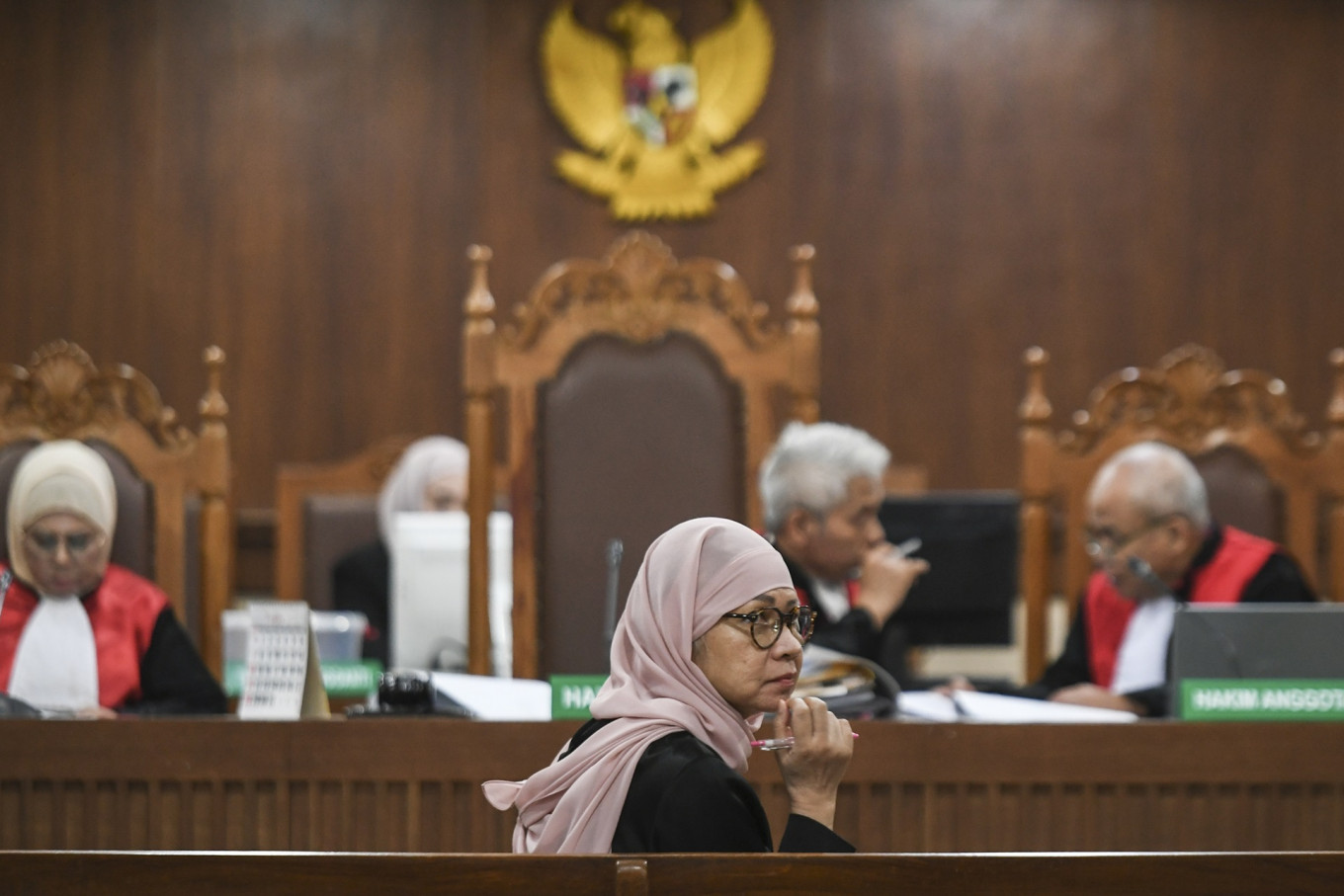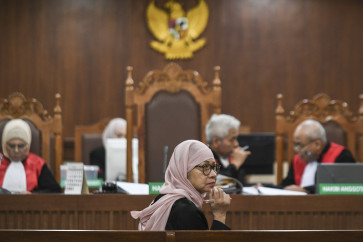Popular Reads
Top Results
Can't find what you're looking for?
View all search resultsPopular Reads
Top Results
Can't find what you're looking for?
View all search resultsUnderstanding business judgment to ensure fairness for directors
In the United Kingdom, unlike in Indonesia, a director holds fiduciary duty toward the company, and the courts will trust that the director’s judgment is always taken in good faith and in the company’s best interests.
Change text size
Gift Premium Articles
to Anyone
W
ithin three days, the Jakarta Corruption Court read its verdict on cases involving two former president directors of state-owned enterprises (SOE), Karen Agustiawan (PT Pertamina) and Emirsyah Satar (PT Garuda Indonesia). Interestingly, this is the second time that both have stood trial for corruption during their tenures as president directors.
Determining the liability of an SOE boss may be tricky because the loss of an SOE may be deemed a state loss which is an element of corruption under the corruption law. While the decisions on Karen and Emirsyah are not legally binding, one cannot dismiss the corruption charges leveled against them.
Many have criticized Indonesian courts’ acute lack of acknowledgement that losses are an inherent risk of doing business, and when a company suffers losses, the director is not always to blame. Former vice president Jusuf Kalla, who testified for Karen in May, acknowledged this risk and he, too, was confused as to why Karen was charged, yet again, for carrying out her duties as CEO.
There is a known principle in corporate law that a director can take commercial judgment without being held liable if such judgment results in losses for the company. In the corporate law textbooks, this concept is called the business judgment rule (BJR).
In Indonesia, the BJR is embodied in Article 97(5) of the Company Law, which says that directors will not be responsible for a company’s losses if they can prove: that the loss has not been caused by their fault or negligence, that the management of the company has been carried out in good faith and prudence for the interest and objective of the company, that there is no conflict of interest and that any action to prevent the occurrence or continuance of the loss has been taken.
Article 97 of the Company Law applies to SOE directors too. However, so far, we have not seen a uniform approach in the interpretation of the BJR by the Indonesian courts, especially in cases involving top SOE executives.
Take the example of Hotasi Nababan, former president director of PT Merpati Nusantara Airlines. Under Nababan’s leadership, Merpati entered into an aircraft lease agreement that was not approved in the Company Business Plan and Budget (RKAP) and paid a US$1 million security deposit to the lessor which, when the aircraft were not delivered by the lessor, failed to be returned to Merpati.



















